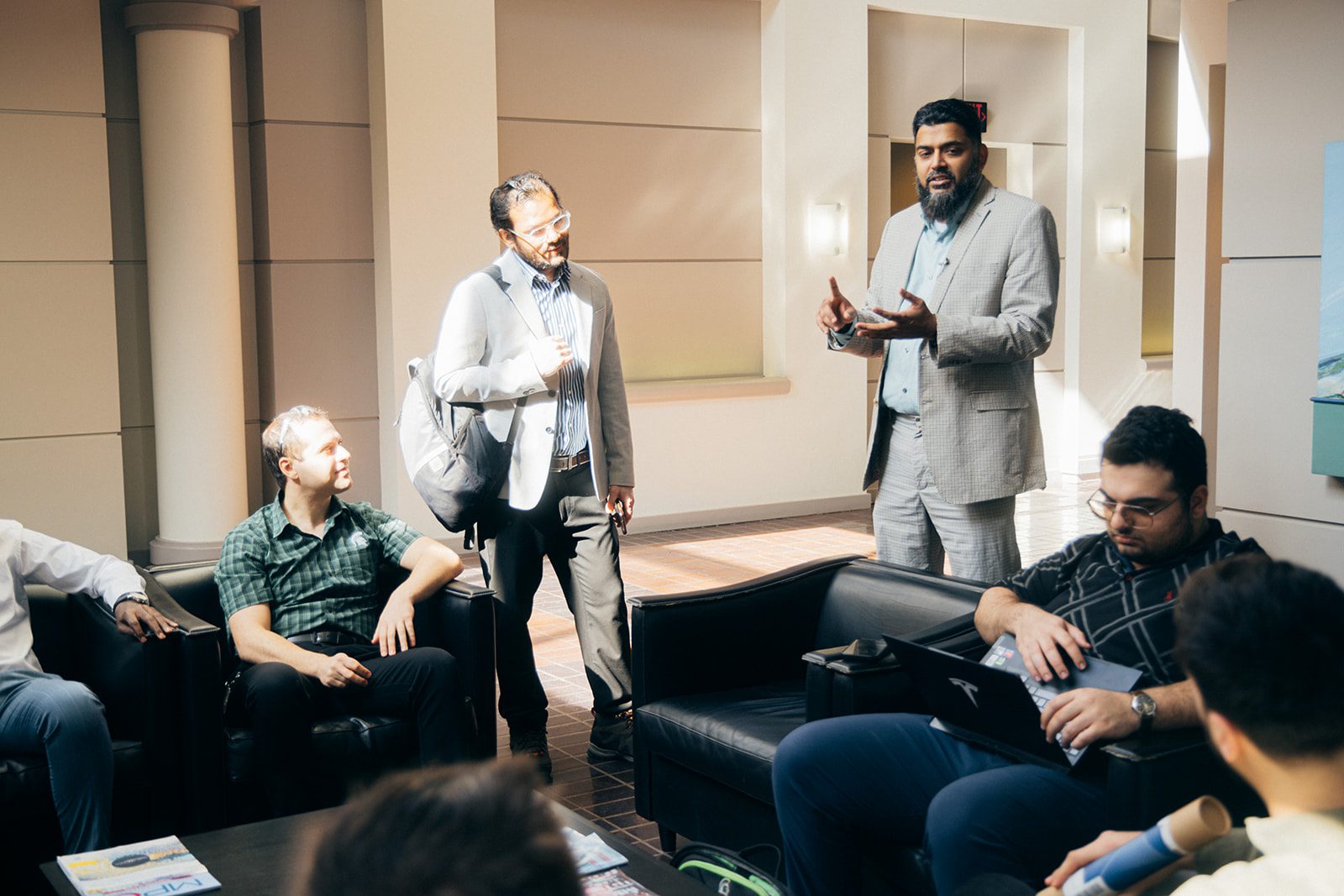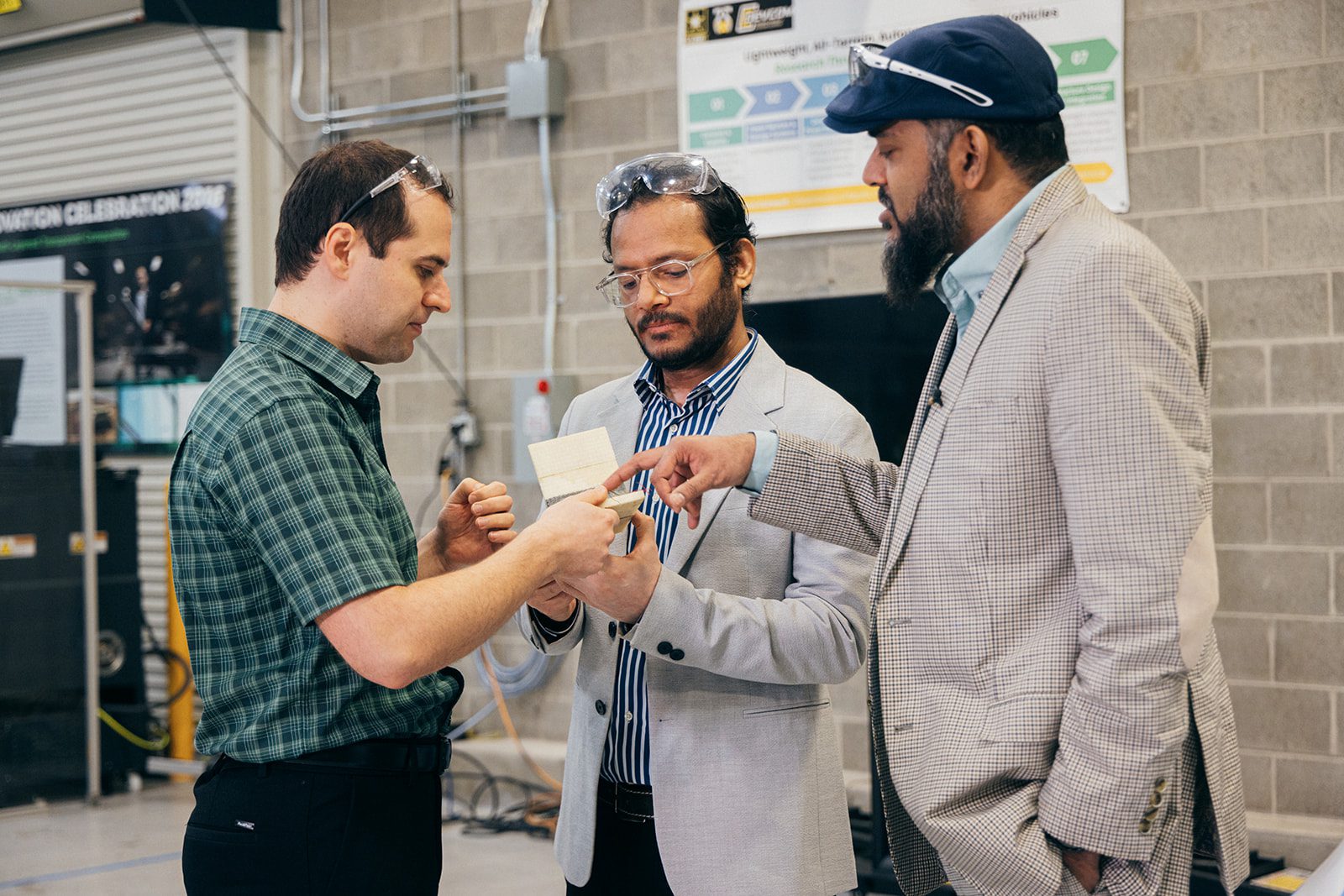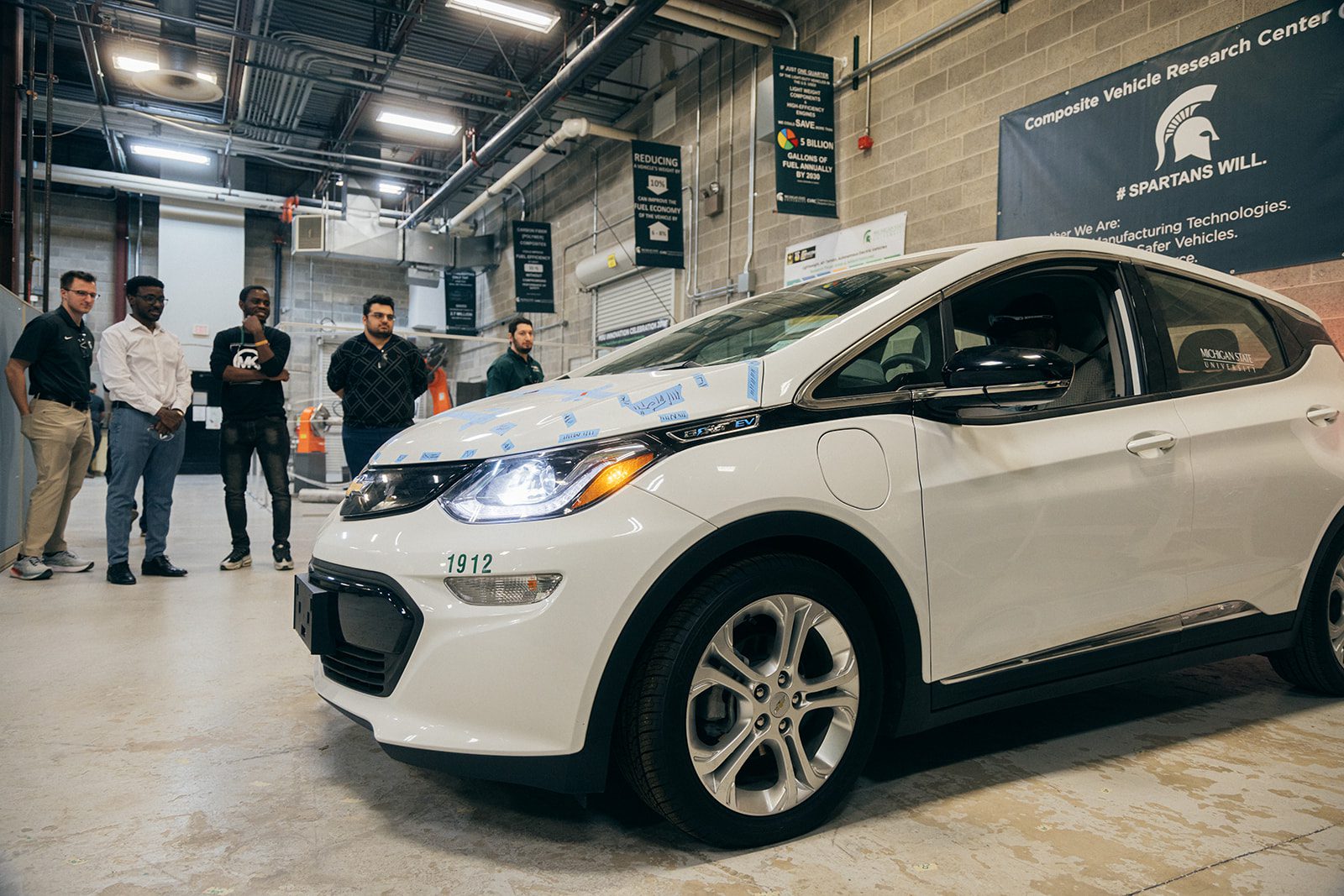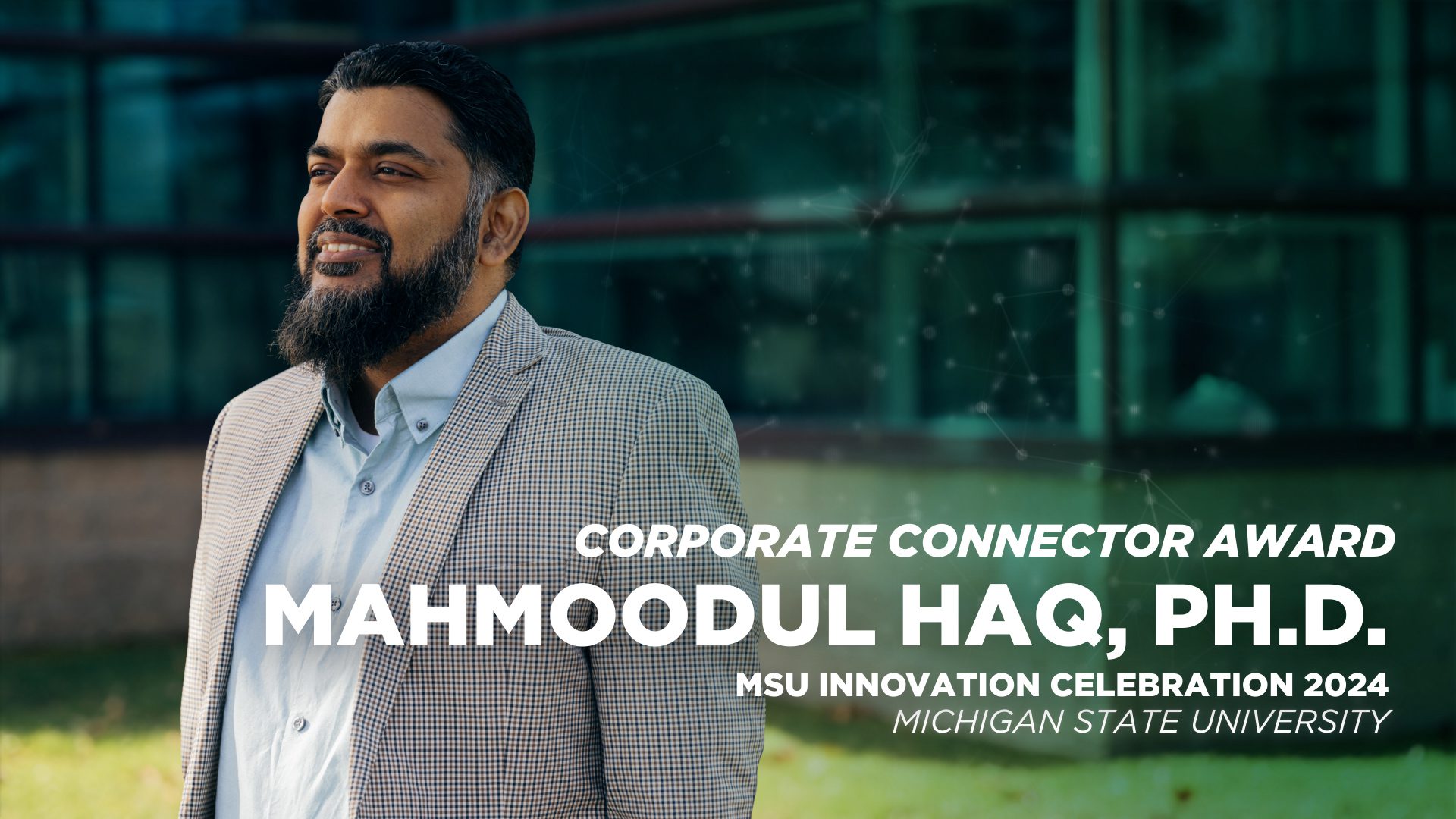East Lansing, MI – For over 25 years, Michigan State University (MSU) has spearheaded research and education in composite materials. These engineered materials combine two or more constituent materials to develop new materials with unique characteristics such as weight reduction, enhanced strength and durability, corrosion resistance, and minimized environmental impact.
Dr. Mahmoodul Haq, Associate Professor of Civil and Environmental Engineering and Director of MSU’s Composite Vehicle Research Center (CVRC), has devoted his career to advancing the field of composite research and to developing the next generation of composite utilization. The broad industrial applicability of Haq’s work in composites has seeded collaborations with some of the top automotive and coatings companies, including Eaton, PPG, and Magna.
 Under Haq’s leadership, the CVRC has built an impressive roster of faculty researchers across multiple disciplines who are engaged in advanced composite shell and structure design, developing innovative experimental mechanics methods, and implementing smart sensing systems for analysis and structural health monitoring. Additionally, the CVRC emphasizes the integration of simulation and experimental mechanics in vehicle design protocols and is a hub for collaborations between researchers and industrial partners.
Under Haq’s leadership, the CVRC has built an impressive roster of faculty researchers across multiple disciplines who are engaged in advanced composite shell and structure design, developing innovative experimental mechanics methods, and implementing smart sensing systems for analysis and structural health monitoring. Additionally, the CVRC emphasizes the integration of simulation and experimental mechanics in vehicle design protocols and is a hub for collaborations between researchers and industrial partners.
The latest collaboration at the CVRC is a $9 million collaborative partnership between the university, industry, and the U.S. Army to build the next generation of lightweight, all-terrain autonomous ground vehicles. While the project itself was the vision of Professor Satish Udpa, former interim President of MSU, Haq is the driving force who is leading the initiative by coordinating the grant and building the team of faculty, students, and corporate partners whose research will ensure the United States is a leader in autonomous vehicle technology for years to come.
 Haq refers to the five-year research program between MSU and the U.S. Army Ground Vehicle Systems Center (GVSC) as “the art of the possible.”
Haq refers to the five-year research program between MSU and the U.S. Army Ground Vehicle Systems Center (GVSC) as “the art of the possible.”
“Whatever is possible, we are going to implement it on a prototype,” he said. “Our current army vehicles are heavy, which makes them sitting ducks for the enemy. So, our goal is very lofty. We want to have a lightweight, nimble, agile, all-electric, all-terrain, autonomous vehicle. We’re taking the human out of the operation theater, which means we will save lives. This project will not only help the defense industry, but it will create jobs and boost Michigan’s economy.”
While various businesses are working on autonomous vehicle technology, Haq says they focus on one innovation, such as batteries, in isolation within their own organizations. The work taking place at the CVRC, however, is unique because it encompasses a holistic approach toward the development of all-terrain autonomous vehicles, with eight distinct research areas headed by different faculty members. Haq manages the difficult task of connecting with companies that can work synergistically with specific areas of the team to develop their vision.
Brice Nelson, Director of Corporate Partnerships at MSU Business Connect, is responsible for enabling and encouraging productive relationships between MSU and the private sector. He’s known Haq for over ten years and says the Corporate Connector of the Year award is well deserved.
 “Dr. Haq has always been very generous with his time and willing to meet with companies,” said Nelson. “He’s also made efforts to bring companies to campus and involve other faculty in those conversations.”
“Dr. Haq has always been very generous with his time and willing to meet with companies,” said Nelson. “He’s also made efforts to bring companies to campus and involve other faculty in those conversations.”
Nelson adds that managing large projects with multiple faculty members can be challenging, but Haq sees collaboration with industry, faculty, and students as part of the bigger picture.
“It makes my job more efficient when I bring companies to a faculty member like Dr. Haq—someone who recognizes the strength of faculty teams, keeps the conversation collaborative, and brings additional faculty in where appropriate. That’s really helpful to us and to our goal of growing MSU’s ecosystem of innovation.”
Haq says his team’s vision can’t be achieved without collaboration with multiple industries, and Business Connect not only helps him find the right collaborators but also removes every hurdle along the way to ensure a smooth transition.
“If we did this project ourselves, chances are it would not happen,” Haq said. “Business Connect has experience dealing with a myriad of industries. They speak the language of each industry, they understand the policies of MSU and the restrictions of the research, and they help us find common ground with corporate partners.”
About 50 people—including professors, postdocs, graduate, and undergraduate students—are working on the project. Haq finds the most rewarding aspect of his role to be linking future STEM leaders with real-life problems.
“If you do things that stay in the lab, then what’s the point of being an engineer? It has to become a prototype. It has to impact lives to become something that can serve humanity.
“I have a simple philosophy,” Haq continued. “I always ask myself, ‘Who am I serving? And what is my legacy?’ I know it sounds cheesy, but I became a professor to have an impact on students who will become future STEM leaders. And there’s no better place than MSU for me to do that.”
Read more about the 2024 Innovation Celebration Award winners HERE.
###
About the MSU Innovation Center:
The MSU Innovation Center is dedicated to fostering innovation, research commercialization, and entrepreneurial activities from the research and discovery happening across our campus every day. We act as the primary interface for researchers aiming to see their research applied to solving real-world problems and making the world a better place to live. We aim to empower faculty, researchers, and students within our community of scholars by providing them with the knowledge, skills, and opportunities to bring their discoveries to the forefront. Through strategic collaborations with the private sector, we aim to amplify the impact of faculty research and drive economic growth while positively impacting society. We foster mutually beneficial, long-term relationships with the private sector through corporate-sponsored research collaborations, technology licensing discussions, and support for faculty entrepreneurs to support the establishment of startup companies.

